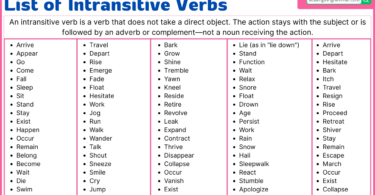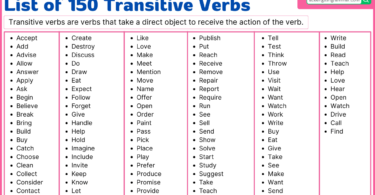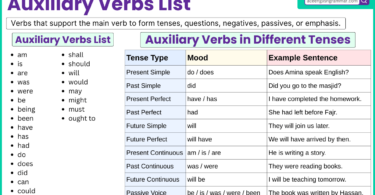Learning phrasal verbs in English can be challenging because their meanings aren’t always straightforward. Without understanding their usage, learners often struggle with fluency. This blog post helps learn common phrasal verbs list to improve your vocabulary and speaking skills. Master these essential expressions for more natural English conversations.
Table of Contents
What is a Phrasal Verb?
A phrasal verb is a phrase that combines a verb with one or more particles (either a preposition or an adverb) to create a meaning that is different from the original verb. These combinations often have idiomatic meanings that may not be immediately clear from the individual words. Phrasal verbs are commonly used in English conversations and are an essential part of the language.
List of Phrasal Verbs With Examples
- Bring up
I don’t want to bring up that topic right now. - Call off
They decided to call off the meeting due to the weather. - Check in
Please check in at the front desk when you arrive. - Come across
I came across an interesting article on history. - Give up
Don’t give up on your dreams, Ahmed! - Go on
The show must go on despite the difficulties. - Hang out
I like to hang out with my friends after school. - Look after
Can you look after my dog while I’m on vacation? - Pick up
Please pick up the phone when it rings. - Run into
I ran into my old friend at the mall yesterday.
A to Z Phrasal Verbs List In English
- Ask out
- Add up
- Act up
- Bring up
- Break down
- Back up
- Call off
- Carry on
- Come across
- Do over
- Drop off
- Drive off
- Eat out
- End up
- Ease off
- Figure out
- Fill out
- Fall for
- Give up
- Go on
- Get along
- Hang out
- Help out
- Hold up
- Iron out
- Invite over
- Iron out
- Jump in
- Jot down
- Join in
- Keep up
- Kick off
- Knock out
- Look after
- Look forward to
- Let down
- Make up
- Move on
- Mess up
- Nod off
- Nurture up
- Narrow down
- Opt out
- Open up
- Overlook
- Pick up
- Pass out
- Put off
- Quit in
- Quick off
- Quote back
- Run into
- Run out of
- Reach out
- Set up
- Show up
- Set off
- Take off
- Take up
- Turn around
- Use up
- Unwind
- Unfold
- Vie for
- Venture out
- Vote on
- Work out
- Wake up
- Wind down
- X-ray (used metaphorically)
- X out
- Xchange
- Yell out
- Yield up
- Yoke up
- Zero in
- Zip up
- Zero out
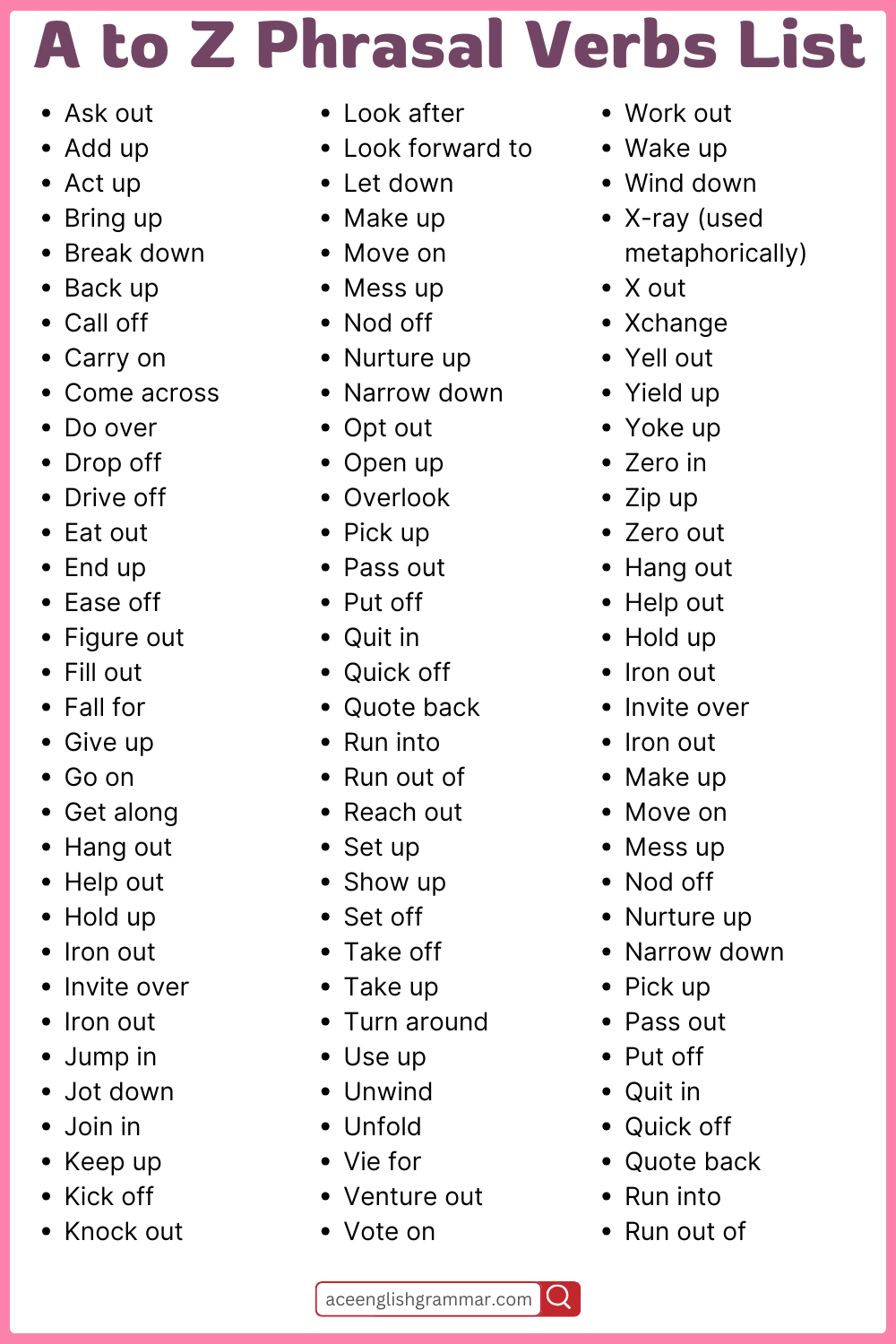
35 Most Common Phrasal Verbs List with Meaning
| Phrasal Verb | Meaning |
|---|---|
| Bring up | To start a conversation about something. |
| Call off | To cancel something. |
| Check in | To register or arrive at a place (like a hotel). |
| Give up | To stop trying, surrender. |
| Pick up | To lift something; to answer a phone call. |
| Look after | To take care of something or someone. |
| Come across | To find something by chance. |
| Turn down | To reject or refuse something. |
| Look forward to | To eagerly anticipate something. |
| Go on | To continue. |
| Hang out | To spend time relaxing or socializing. |
| Set up | To arrange or establish something. |
| Run into | To meet someone unexpectedly. |
| Work out | To exercise or to solve a problem. |
| Make up | To invent something, especially a story or excuse. |
| Take off | To ascend (aircraft); to become successful. |
| Break down | To stop working (for machines or vehicles). |
| Call up | To phone someone. |
| Come up with | To think of something (an idea, plan, etc.). |
| Show up | To appear, arrive. |
| Take up | To begin learning or doing something new. |
| Put off | To delay or postpone something. |
| Check out | To look at something or to borrow a book. |
| Cut out | To stop doing something. |
| Give in | To surrender or yield. |
| Run out of | To have no more of something. |
| Set off | To begin a journey or to activate something. |
| Pick out | To select from a group of items. |
| Look up to | To admire or respect someone. |
| Take over | To assume control or responsibility. |
| Break up | To end a relationship. |
| Turn up | To appear, to arrive. |
| Drop off | To leave something or someone at a location. |
| Get along | To have a good relationship. |
| Keep up with | To stay informed or updated. |
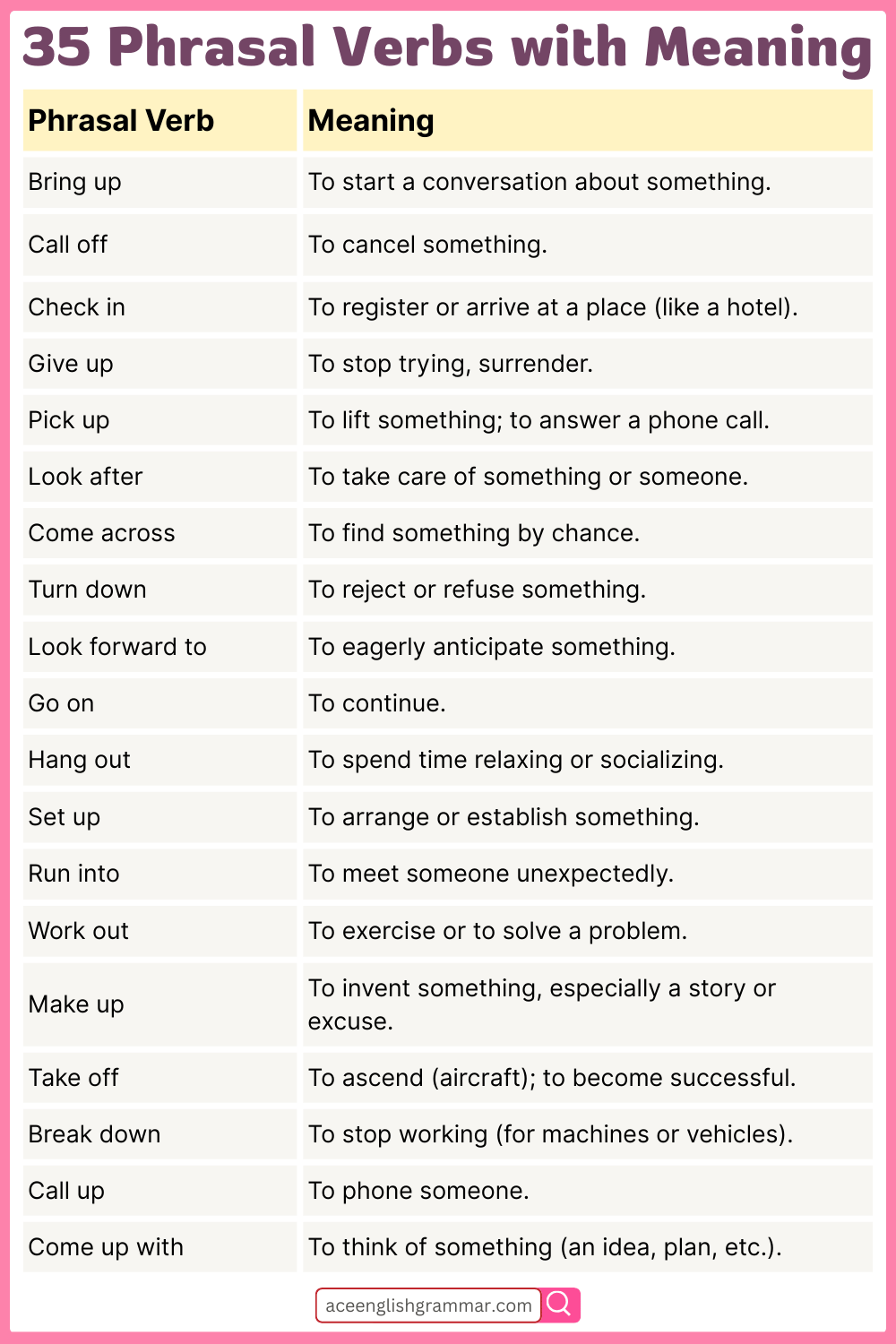
Other Phrasal Verbs List
- Bail out
- Act up
- Back out
- Blow up
- Carry on
- Cheer up
- Come up with
- Cut off
- Dress up
- Fall apart
100 Phrasal Verbs List with Their Meaning
| Phrasal Verb | Meaning |
|---|---|
| Ask out | To invite someone on a date. |
| Back up | To support or to make a copy. |
| Blow up | To explode or to get very angry. |
| Carry on | To continue doing something. |
| Catch on | To understand something. |
| Check out | To examine or investigate something. |
| Come across | To meet or find unexpectedly. |
| Come over | To visit someone. |
| Cut back | To reduce something. |
| Drop by | To visit briefly. |
| Drop off | To leave something or someone somewhere. |
| Fill out | To complete a form. |
| Get across | To successfully communicate something. |
| Give away | To donate something or reveal a secret. |
| Go off | To explode or sound (e.g., alarm). |
| Hold up | To delay or to rob. |
| Iron out | To resolve differences or difficulties. |
| Join in | To participate in an activity. |
| Let down | To disappoint someone. |
| Look after | To take care of something. |
| Look into | To investigate something. |
| Make out | To understand or see clearly. |
| Make up | To reconcile after an argument. |
| Move on | To move forward, start a new phase. |
| Pick up | To collect something or to improve. |
| Put off | To delay or postpone something. |
| Set up | To establish or arrange something. |
| Show up | To arrive at a place. |
| Shut down | To close or stop operating. |
| Turn around | To change direction or improve. |
| Turn down | To reject something. |
| Work out | To exercise or solve a problem. |
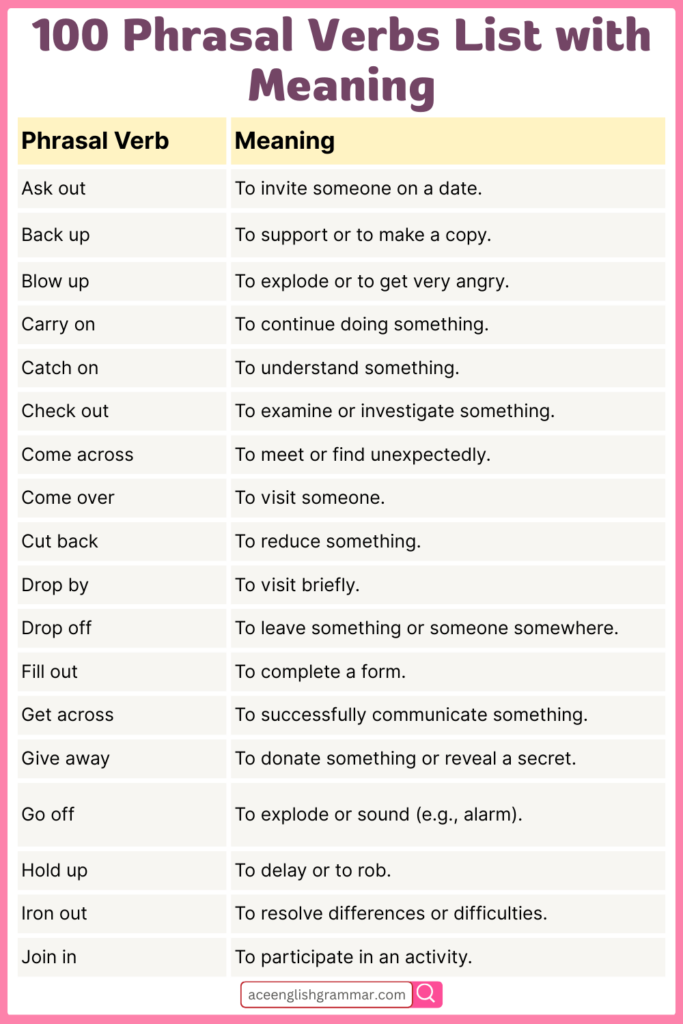
FAQs
A phrasal verb is a combination of a verb and one or more particles (preposition or adverb) that takes on a meaning different from the original verb.
Practice using them in sentences, watch movies, or listen to native speakers. Flashcards are a great tool for memorization.
Phrasal verbs are more common in informal spoken language. In formal writing, it’s often better to use single verbs or more formal expressions.
A regular verb has one meaning (e.g., “run”), while a phrasal verb’s meaning is a combination of the verb and the particle (e.g., “run into” means to meet unexpectedly).
Phrasal verbs can be confusing because their meaning isn’t always obvious from the words themselves, and many verbs have multiple phrasal verb meanings.
Here are ten of the most common phrasal verbs: Get up, Look for, Give up, Pick up, Turn on, Turn off, Bring up, Call off, Run into, and Break down.
Conclusion
In this blog post, we explored a list of phrasal verbs essential for improving your understanding of English. With examples, explanations, and practice questions, you can now use phrasal verbs in both your written and spoken communication more confidently. Keep practicing, and these expressions will soon become a natural part of your vocabulary.
Read More

